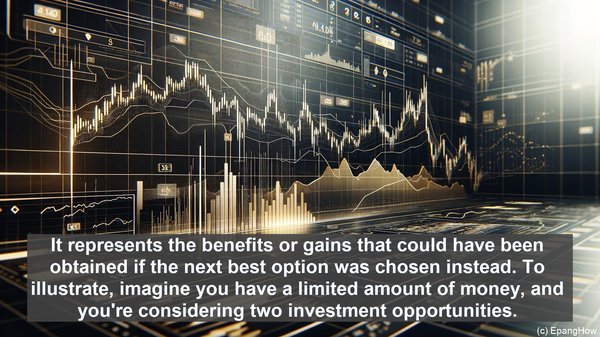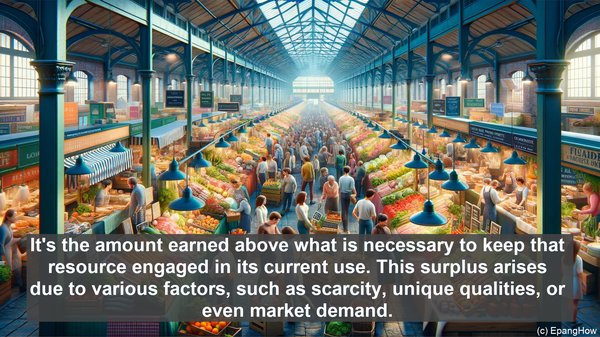Introduction: The Essence of Economic Decisions
Hello everyone, and welcome to today’s article on the intriguing world of economics. As we delve into the subject, we encounter various terms and concepts that shape our understanding of how economies function. Two such concepts, economic rent and opportunity cost, often come up in discussions. While they may seem similar at first, they represent distinct aspects of economic decision-making. Today, we’ll explore the differences between these two concepts, shedding light on their individual significance.
Defining Economic Rent: The Surplus Gained
Let’s start by understanding economic rent. In simple terms, economic rent refers to the surplus gained from a resource or factor of production. It’s the amount earned above what is necessary to keep that resource engaged in its current use. This surplus arises due to various factors, such as scarcity, unique qualities, or even market demand. For example, consider a prime location in a bustling city. The rent charged for a commercial space in that area would likely be higher than in a less desirable location, reflecting the economic rent associated with the prime spot.
Exploring Opportunity Cost: The Trade-Offs Involved
Now, let’s turn our attention to opportunity cost. Unlike economic rent, which focuses on surplus gained, opportunity cost deals with the trade-offs involved in decision-making. Whenever we make a choice, there are alternative options that we forgo. The value of the best alternative forgone is the opportunity cost. It represents the benefits or gains that could have been obtained if the next best option was chosen instead. To illustrate, imagine you have a limited amount of money, and you’re considering two investment opportunities. The opportunity cost of choosing one investment is the potential returns you would have received from the other investment.

Key Differences: Time Horizon and Calculation
While both economic rent and opportunity cost are crucial concepts, they differ in several aspects. One significant difference lies in the time horizon. Economic rent is often associated with the short term, where the surplus gained is immediate. On the other hand, opportunity cost extends over the long term, as the benefits from the foregone alternative may have been realized gradually. Additionally, the calculation of these concepts varies. Economic rent is relatively straightforward to determine, as it’s often based on market prices or demand. In contrast, opportunity cost involves a more complex evaluation, considering factors like potential gains, risks, and even intangible aspects.
Applications in Real-World Scenarios
Understanding economic rent and opportunity cost is not just an academic exercise; these concepts have real-world implications. For instance, in the housing market, the concept of economic rent plays a significant role in determining rental prices. Factors like location, amenities, and demand contribute to the economic rent associated with a property. On the other hand, opportunity cost is relevant in various decision-making scenarios, be it personal choices, business strategies, or even government policies. By considering the trade-offs involved, decision-makers can make more informed and efficient choices.

